A SELFISH & IRRESPONSIBLE RIGHT?
Singapore Advocacy Awards Lecture, 4 July 2015.
Of all advanced industrial nations, Singapore has by far the least freedom of expression. What makes this fact even more remarkable is how little pressure there is from the public for liberal reform. One reason for this state of affairs is the negative reputation that freedom of expression has been saddled with.
It was long seen as a bit of a luxury, compared with more basic requirements. But now that Singapore is a wealthy country, freedom of expression is still frowned upon. It is portrayed as something self-indulgent, bringing ego gratifications and other private pleasures to individuals, but often at a cost to society.
Today, I want to challenge this widespread perception of freedom of expression as a selfish and socially irresponsible right.
The misperception is not surprising. Human rights, after all, belong to the individual rather than groups. And they kick in precisely when the individual’s well-being diverges from what some claim to be society’s interests. As a result, it may seem that rights not only belong to the individual but are also for the individual, and against the social good. What’s more, it is not difficult to recall examples of others using their freedom to express themselves in ways that harmed people around them.
But while this perception of free speech as an essentially selfish and socially irresponsible right is understandable, it is also quite wrong. It arises mainly from the myth that the right to freedom of expression is absolute and unconditional.
Freedom from torture and freedom from slavery are examples of absolute, unconditional rights, according to international human rights norms. Freedom from expression is not. No constitution in any liberal democracy and no international or regional human treaty says it is. And no international NGO championing the cause claims that it should be. Not Amnesty International, not Human Rights Watch, Freedom House, Article 19, or Reporters Without Borders. And in Singapore, not Maruah or the Community Action Network.
Yet, how often have we heard conversations about freedom of expression swiftly reach this dead end. Someone says that the country needs more freedom; someone else objects that freedom surely cannot be absolute; and suddenly the debate ends up being framed as an either-or choice between the anarchy of unlimited free speech and the status quo. Naturally, many pick the latter, and assume those of us advocating freedom of expression are really promoting the values of selfishness and irresponsibility.
The human rights standard
What do human rights standards actually say? The main international human rights treaty is the International Covenant on Civil and Political Rights. Article 19 guarantees freedom of expression:
19.2. Everyone shall have the right to freedom of expression; this right shall include freedom to seek, receive and impart information and ideas of all kinds, regardless of frontiers, either orally, in writing or in print, in the form of art, or through any other media of his choice.
But it states explicitly that this is a limited right:
19.3. The exercise of the rights provided for in paragraph 2 of this article carries with it special duties and responsibilities. It may therefore be subject to certain restrictions….
Singapore, too, recognises freedom of expression and treats it a limited right in Article 14 of our Constitution. Does this mean that it is consistent with the ICCPR?
To answer this question, we need to go deeper into the international norm.
It says that freedom of expression should be the rule, not the exception, and that any restriction shouldn’t undermine the essence of the right. To that end, any proposed restriction should be in line with the full wording of Article 19.3:
19.3. The exercise of the rights provided for in paragraph 2 of this article carries with it special duties and responsibilities. It may therefore be subject to certain restrictions, but these shall only be such as are provided by law and are necessary: (a) For respect of the rights or reputations of others; (b) For the protection of national security or of public order (ordre public), or of public health or morals.
From this emerges what’s been called the three-part test.
Restrictions: the 3-part test
First, is the restriction “provided by law” – does it follow written laws that are clear and precise? If not, it would fail the test, because it would allow people in power to restrict speech in an arbitrary manner, according to their own interests.
Singapore’s laws do not meet the required standard. Too many of the government’s powers, such as over online media, are contained in subsidiary regulations made up by the executive, rather than spelled out in the statutes that have been debated and enacted by Parliament.
The Newspaper and Printing Presses Act gives the government the immense power of deciding whether a newspaper should live or die and who should sit on the board of directors, yet the Act does not state on what basis ministers should make these determinations or how they can be challenged. In effect, although Singapore prides itself on the rule of law, media regulation is a case of rule by law [1].
The second element in the three part test checks if the restriction in question is based on legitimate grounds. Article 19.3 (a) and (b) identify very specific grounds for restricting free speech. Defamation law is allowed, for example, to protect people’s reputations. National security, public order and public morals are all recognised as legitimate grounds, if the restrictions are written narrowly and not used as an excuse to silence debate.
There can also be restrictions to protect the rights of others. So, to protect the right to vote, states can shield citizens from expression that is intended to intimidate or coerce them during elections. Hate speech restrictions are not only allowed, they are actually required under Article 20 of the ICCPR, which tells states that they must prohibit incitement to inflict harm on people based on their racial, religious or other identities.
However, the list of legitimate grounds is not open-ended. It does not include protecting the feelings of different communities, or protecting religious or other beliefs from attack, and certainly not making government officials’ job easier – all of which are used to justify restrictions in Singapore. Such regulations fail test 2.
The third test is one of necessity and proportionality. If we sincerely respect freedom of expression as a right, we have to ensure that any restrictions are genuinely needed to achieve the legitimate goals identified in test 2, and that they do not impose excessive punishments that would chill speech or use the the social good as an excuse to silence debate.
So, for example, although defamation is recognised as a line that speakers shouldn’t cross, it would not be considered proportionate to bankrupt opposition leaders when they are successfully sued. International norms also say that defamation should be a civil matter and not come under criminal law, the way it still does in Singapore.
Also highly problematic is so-called “prior restraint” – such as using a licensing system to silence a newspaper even before it prints its first issue. There is no logical connection between the legitimate public interest in preventing race riots and the regulatory solution of requiring publishers to apply for a permit to publish a newspaper. Such rules earn Singapore an F grade in this third part of the three-part test.
Regarding the ICCPR, we can at least say that Singapore is not hypocritical. Unlike the many countries that have signed this treaty but flagrantly violate its principles – China, Zimbabwe, Iran – Singapore is one of the handful of states that has had the courage of its convictions and opted out of the world’s main human rights treaty.
My point, though, is that the international standard that Singapore is refusing to accept is not absolute freedom. It is something far more reasonable: freedom of expression with clear limitations – limitations that are necessary and proportionate, spelled out in laws that tell government what it can and cannot do, and only for reasons that international norms recognise as legitimate.
Free speech and democracy
So much for legal standards. What about democratic theory? From this perspective, it is again a myth that democratic principles call for unrestrained, unregulated speech.
One important branch of political thought, clustered around the terms “deliberative democracy” or “public sphere” theory, emphasises the public’s need for information and ideas required for self-government [2]. Citizens have a right to receive communication that is worth listening to.
This is why we see public funded but politically independent broadcasters in Britain, most of Western Europe, Canada and Australia, with strict mandates to represent different political points of view as well as minorities. So, freedom of expression in this view doesn’t mean the law of the jungle; democracy recognises the need for interventions to sustain a neutral and accessible space for the exchange of ideas.
Political theory also recognises that democratic governance doesn’t mean that public opinion or people power must apply in every corner of the public sphere. In fact, the rule of law – an essential component of democracy – requires that questions of justice be insulated from public opinion. The police and the courts are expected to go by the rules, regardless of how vocal the opposition to their decisions.
There are many other forums where ensuring the quality of discussion and getting real work done takes precedence over people’s need to speak up. We can call these “managerial domains” [3]. When NASA probes outer space or when CERN plays with its Large Hadron Collider to explore the boundaries of scientific knowledge, the discourse within these managerial domains is highly regulated to ensure that only those with the very highest levels of expertise get to speak.
Thus, it is manifestly not true that democracies wedded to freedom of expression are doomed never to succeed in long term public projects requiring patience and expertise. That’s only the case if you push for absolute and total freedom, and no democracy wants that.
If “managerial domains” are dedicated to achieving a certain purpose, it is in the domain of public discourse where people decide what those purposes should be. It is through public discourse that people in a democracy express and shape their interests, seek conciliation and make compromises, and it is there that the maximum level of free expression is required.
This has to do with the fact that democracy is essentially is a promise we make to one another that even if we don’t like the outcome of certain collective decisions, we will peacefully respect them. No other system known to man is better able to generate the peaceful and voluntary assent of the losers, without coercion or violence. This assent depends on the legitimacy of the process, which is more likely when every segment of society believes that it has been heard [4].
Here again, we can see that it is a gross mischaracterisation to consider freedom of expression a selfish or irresponsible right. The right to freedom of expression is so important not for the sake of the individual alone, but because the right to hear and be heard is central to an order tailored to achieve peaceful co-existence as a society.
Free speech and governance
Now, what about the governance angle? It is often suggested that more freedom of expression will undermine good governance in Singapore. This argument has already been partially addressed by my earlier point. Democratic theory does not deny that certain public institutions, while ultimately in tune with the national climate, must be kept insulated from the vagaries of day-to-day public opinion so that it they can make just and long-term decisions. The challenge, instead, is to strike the right balance between responsiveness and autonomy.
Singapore does not appear to have found the right balance. Excessive limitations on freedom of expression have been costly not only for would-be speakers, but also for governance.
Anyone who cares about public policymaking recognises that the environment for public discourse has been toxic in recent years. Cynicism about governance has been so deep that the government failed to sell its most important long term blueprint, the Population White Paper. And this a government that has placed among the very top of its principles the ability to leverage trust in order to sell policies vital for the long term.
If we are honest, we’ll recognise that two specific policies are at the root of this erosion of trust: foreign talent attraction and market-pegged ministerial pay, both of which were pursued in ways that ultimately convinced many ordinary Singaporeans that the government was not really working for them.
I want to make it clear here that it is not my intention to take cheap shots at either policy. I have written before that I actually have no trouble with high ministerial pay in principle, as long as it isn’t coupled with an expectation that leaders be protected from disrespect in public discourse. And living as I do in Hong Kong, I have come to think that another million people could easily fit into Singapore – as long as housing, transport and other infrastructure were built ahead of demand like in the good old days.
But setting aside what I think, it’s clear these policies were pursued in ways that were oblivious to public opinion, resulting in a real cost to the environment for governance.
What is striking about both policies is that the unhappiness towards them is not new. It’s been simmering since the 1990s. I recall fellow journalists 20 years ago who wanted to write about controversial immigration issues, and to convey the lingering unhappiness about ministerial pay. They were stopped from doing so by clear OB markers.
The government won these public debates in the 1990s not by the force of argument but by arguing through force. It was able to move decisively and efficiently, but ultimately in a suboptimal fashion.
Ultimately, the artificial silence around these issues seemed to delude even policymakers that people didn’t really mind them, until unhappiness erupted in the 2011 general election. In hindsight, it would surely have been better even for the government if it had allowed dissenting views to be vented much earlier. This may have been inconvenient in the short term, but the proverbial stitch in time could have saved nine.
Free speech and PAP dominance
We live in a politically polarised period and so it is probably inevitable that my remarks today, and probably this whole event, will be viewed by some as anti-government or anti-PAP. But, I think anyone seriously committed to the PAP’s endurance as a national movement would recognise that more freedom to criticise it can actually be in the party’s own long-term interests. The noise and unruliness of wide-open public debate may be inconvenient in the short run for the individuals who happen to be in office; but it could well be to the long-term benefit of the PAP as an institution, by improving its legitimacy in selling unpopular policies.
There is another respect in which Singapore’s stifled freedoms are irresponsible even from a pro-PAP perspective. Consider the party’s favourite nightmare scenario: a freak election in which it is suddenly booted out of power and finds itself in opposition. When that happens, all those discretionary powers that it now possesses will pass into the hands of another party, which can then stack the corporate and editorial leadership of news organisations with anti-PAP members, choke funding of inconveniently pro-PAP blogs, support only heritage projects that present what the PAP calls revisionist views of history, refuse grants to artists who look back longingly to the good-old PAP days, deny tenure to academics who challenge the new regime, and so on. Through all these media and cultural levers conveniently installed by the PAP, the new regime can ensure that the PAP finds it almost impossible to win back power.
This is why, in competitive democracies, it is in the interest of ruling parties to allow independent and diverse media, and to ensure an arms-length relationship with regulators and public institutions – because you never know on which side of the fence you may be on. If you create strings to pull, your enemies may end up pulling them.
It was for this reason that the government introduced the so-called second key on the reserves, held by an independently elected President. Surely it is also worth ensuring that media, arts and culture – the ideological apparatus of the state – don’t fall into the irresponsible hands either. Better to give them independence now. (It suddenly occurred to me this week that this was a point I argued in an individual submission to the Parliamentary Select Committee on the Elected Presidency back in 1990, when I was half my age. Which just goes to show what a dismal track record I’ve had persuading the people who really matter about anything.)
Singapore exceptionalism?
Despite the evidence that excessive restrictions on freedom of expression have been costly for governance, there may still be diehard conservatives who argue that, all said and done, Singapore is the best country on earth, and that those of us who seek more freedom are being irresponsible.
I liken this attitude to a father who tells his family that since he is fitter and healthier than other men out there, he really doesn’t need to take out a life insurance policy. Nor does his homemaker wife and his children need to bother learning how to manage the family business. He has never let them down in the past, so why should the future be any different? To keep the family going, everyone should instead focus on helping father live a long life, by keeping him comfortable and stress-free and showing him due deference.
Common sense tells us that such an attitude, whether applied to a family or a nation, is recklessly self-centred and irresponsible.
The history of human civilisation warns us that power can go wrong in horrendous ways. The selfless and responsible thing for people to do is to invest in the insurance policy of democratic checks and balances, chief among which is freedom of expression, even if this means slower governance.
I’ll readily admit that many people around the world use freedom of expression selfishly and irresponsibly. But I would request that we also acknowledge that the same is true of many in power who curtail that freedom. Neither side holds the monopoly on either virtues or vices. But there should be absolutely no doubt about which can do more damage to society. The irresponsible exercise of freedom of expression can be harmful, but the danger pales in comparison to the miseries caused throughout history by powerful men who silence speech. It’s partly because that pattern is so blindingly obvious that most 21st societies have chosen to err on the side of freedom.
A shared humanity
Respecting freedom of expression doesn’t come naturally, either to governments or to citizens. In our natural states, our instincts are to make sacrifices for one’s own tight circle – family, clan or tribe.
When we transcend this primordial instinct and say that we are prepared to hear out those who seem alien and even offensive, that we won’t automatically threaten to sue or lodge police reports against those who upset us, that we will try engagement and have faith in the public’s ability to discern the better argument, there’s nothing selfish about any of this; it is about taking responsibility for building a stronger society.
Freedom of expression is about giving all the right to be heard, not just giving ourselves the right to speak. It is about recognising the shared humanity of total strangers, including people who may have very different values and interests from us. In this respect, committing oneself to freedom of expression as a universal right is a deeply selfless act of citizenship.
Notes
A primer on freedom of expression, created for my students at HKBU, can be found here.
[1] See, for example, Jothie Rajah’s Authoritarian rule of law: Legislation, discourse and legitimacy in Singapore, Cambridge University Press, 2012.
[2] This perspective is associated mostly with the social theorist Jurgen Habermas.
[3] The distinction between “managerial domains” and “public discourse” was made by Yale law professor Robert Post.
[4] This argument has been made best by Ronald Dworkin, who pointed out that “if we intervene too soon in the process through which collective opinion is formed, we spoil the only democratic justification we have for insisting that everyone obey these laws, even those who hate and resent them”.
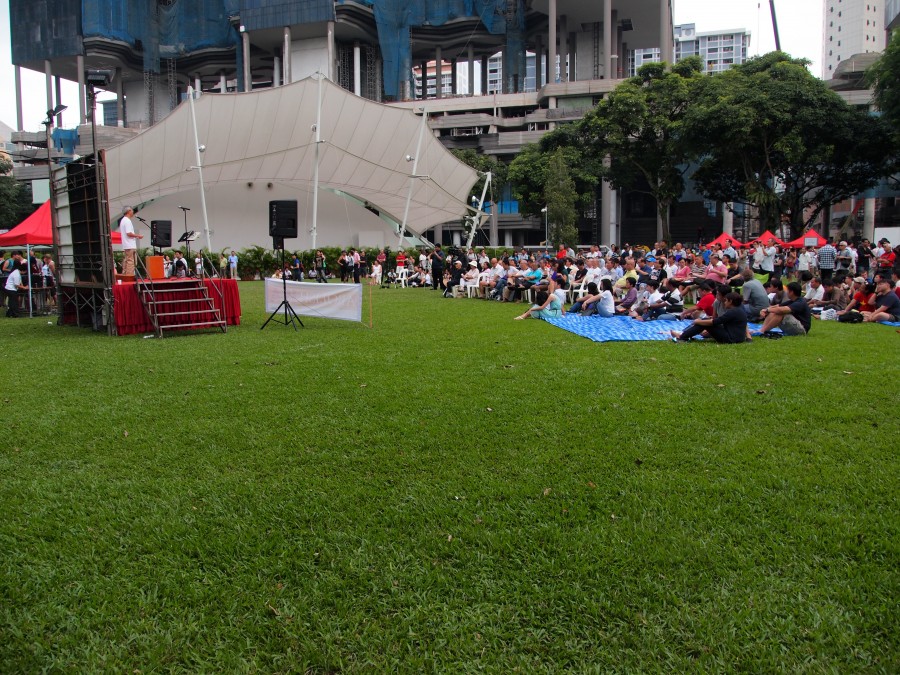

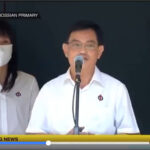

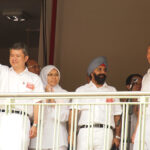
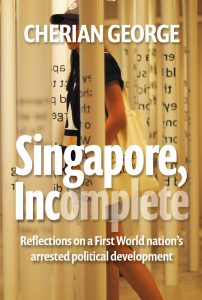
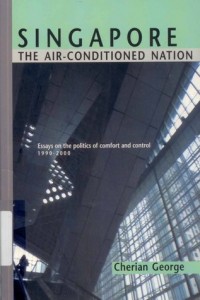
Comments are closed.